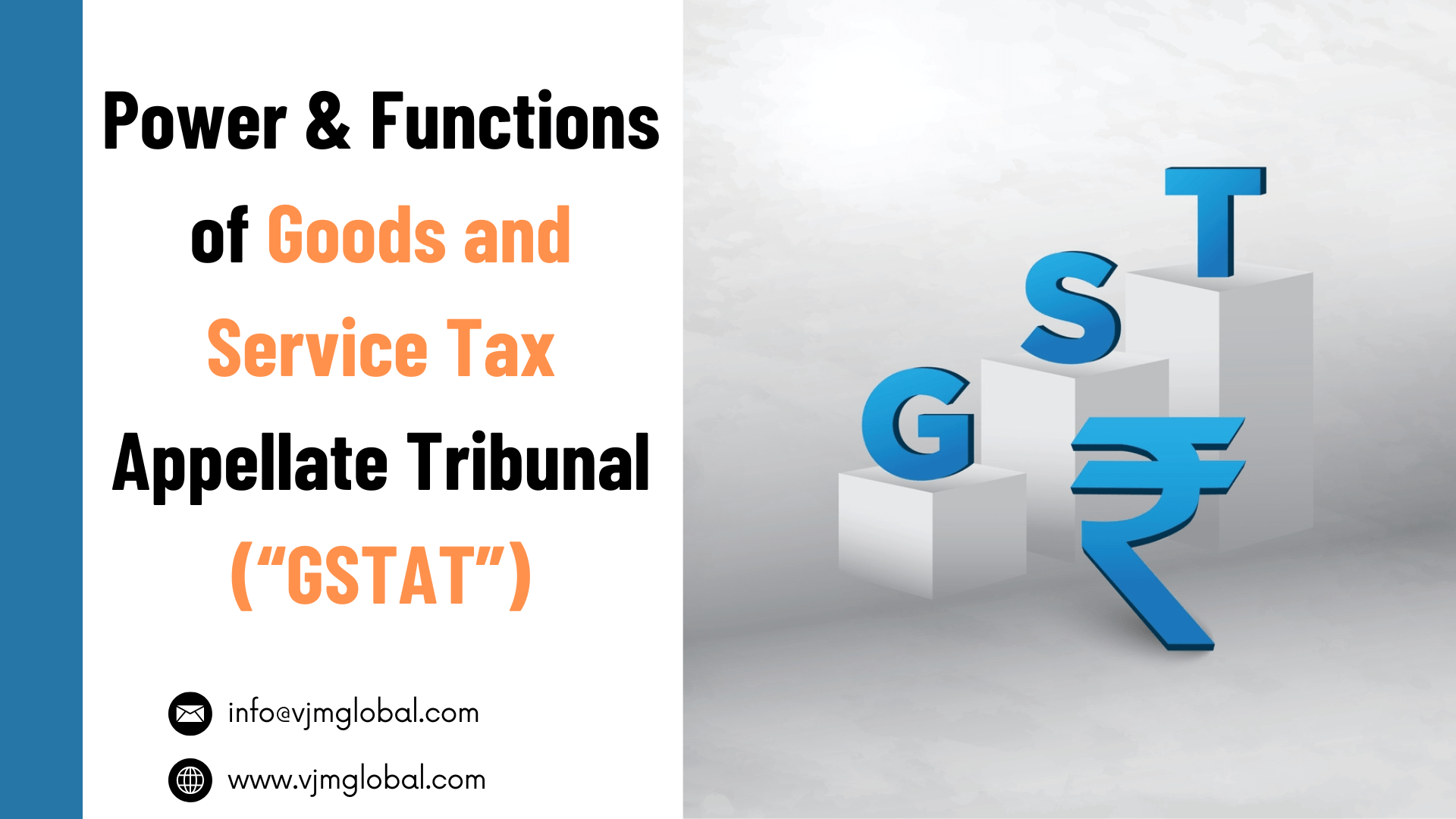The Goods and Services Tax Appellate Tribunal (GSTAT) is a specialized body set up under the Central Goods and Services Tax (CGST) Act, 2017, to handle appeals and disputes related to Goods and Services Tax laws in India. After a long wait, the Government has finally clarified the procedure and structure of the GST Litigation process on 24th April, 2025.
The Ministry of Finance (Department of Revenue) has released Notification G.S.R. 256(E), setting out how the Goods and Services Tax Appellate Tribunal (GSTAT) will operate.
Chapter II of the Goods and Services Tax Appellate Tribunal (Procedure) Rules, 2025 (“GSTAT Procedure Rules”), outlines the key powers and functions that enable the Tribunal to operate effectively and deliver justice. These rules ensure that the Tribunal can manage its proceedings smoothly, maintain fairness, and address GST-related disputes efficiently.
This article explains the powers and functions of the GSTAT as described in Chapter II and makes it easy for everyone to understand.
Read Also: Union Budget 2025| Key Takeaways for GST and Customs
1. Functions of the GSTAT
The GSTAT shall function on the following terms:
1.1 Constitution of the GSTAT:
- As per Section 109(3) of the CGST Act, the GSTAT shall consist of:
- President;
- A Judicial Member;
- A Technical Member (Centre);
- A Technical Member (State)
1.2 Sitting hours of the Tribunal Bench
- The sitting hours of the tribunal shall be from 10.30 AM to 1.30 PM and 2.30 PM to 4.30 PM.
- However, the President can adjust these hours or extend them if needed.
- This flexibility shall allow the Tribunal to handle urgent cases or manage a heavy workload effectively.
- Further, the Admin office of the GSTAT shall remain open on all working days from 9.30 AM to 6.30 PM.
1.3 Sitting of the Bench:
- The GSTAT shall hold its sittings at the locations notified by the Central Government.
1.4 Inherent Powers of the Tribunal
- The GSTAT shall have the inherited power to issue any orders or directions that are required to ensure that justice is served or to prevent misuse of its processes.
- These powers allow the Tribunal to address situations that may not be covered by specific rules.
- For example, it can issue special instructions to resolve a unique issue in a case, ensuring that fairness is maintained.
1.5 Computation of Time Periods
- For the computation of the period of any task, where the period is prescribed under the GST Law, the date from which the said period is to be reckoned shall be excluded.
- E.g., if a 30-day period begins on April 1, the 30 days counting shall start from 2nd April.
- Further, if the last day of the period falls on a day when the Tribunal’s office is closed (like a holiday or weekend), that day and any following days on which the GSTAT office is closed shall be excluded.
- This ensures that parties have enough time to meet deadlines without being penalized for office closures.
1.6 Format of Orders and Rulings
- Every ruling, direction, order, summons, or any other mandatory process shall be issued by the GSTAT in the name of the president or the Member.
- Such a document shall be signed by the Registrar or any other officer authorized by the President.
- Each document shall include the date of signing and be sealed with the Tribunal’s official seal if a physical copy is issued.
- This process shall ensure that all Tribunal decisions are official, traceable, and legally binding.
1.7 Official seal of the Appellate Tribunal
- The official seal and emblem of the GSTAT shall be specified by the president from time to time.
- Further, the same shall remain in the custody of the Registrar.
- The seal is used on physical copies of important documents, like orders or summons, to confirm their authenticity. This adds a layer of security and trust to the Tribunal’s operations.
1.8 Custody of Records
- The custody of all records of the GSTAT shall remain with the Registrar.
- No record shall be allowed to be taken out of the custody of the Appellate Tribunal without the leave of the Appellate Tribunal.
- However, the Registrar may allow any other officer of the Appellate Tribunal to remove any official paper or record for administrative purposes from the Appellate Tribunal.
1.9 Calendar
- The GSTAT’s working days shall be decided by the President and its Members.
- This calendar helps parties know when the GSTAT is operational, making it easier to plan filings, hearings, and other activities.
1.10 Listing of Cases
- To prioritize the urgent matter, any urgent matter filed before 12:00 noon shall be listed for hearing on the next working day, subject to completion of all the documents.
- Further, in exceptional cases, applications filed after noon but before 3:00 p.m. may also be listed for the next day with the Tribunal’s or President’s permission.
2. Power of the GSTAT
The GSTAT procedure rules have granted various powers to the GSTAT:
2.1 Power to Exempt
- The Tribunal can exempt parties from following certain rules based on a valid reason.
- E.g., if a party cannot meet a specific requirement due to unforeseen circumstances, the Tribunal can waive that requirement or issue alternative instructions.
- This flexibility helps ensure that justice is not delayed or denied due to technical issues.
2.2 Power to Extend Time
- The Tribunal can extend deadlines set by its rules or orders, even if the request for an extension is made after the original deadline has passed.
- This power is used to ensure fairness, allowing parties extra time when justified, such as in cases of genuine delays or hardships.
2.3 Powers and Functions of the Registrar
The Registrar plays a crucial role in the GSTAT’s operations. The Registrar shall have the following powers and functions:
- Day-to-day administration of the GSTAT;
- Notify the procedure for filing appeals to the GSTAT.
- Registration and scrutiny of appeals, petitions, and applications.
- Handling requests for amendment of the appeal or the petition, or the application, or subsequent proceedings;
- Receive applications for summons, notices, or substituted service.
- Managing applications for document inspection or admission.
- Maintaining records of proceedings and overseeing the registry.
- Handling other tasks assigned by the President.
The Registrar shall ensure that the GSTAT’s process runs smoothly and that all filings and proceedings are properly documented.
2.4 Power of Adjournment
- The Tribunal can adjourn the hearings, usually at the request of a party before the relevant Bench.
- However, in extraordinary cases, the Registrar may adjourn a matter, if directed by the Tribunal, and then lay the same before the Appellate Tribunal in Chambers.
2.5 Delegation of Powers of the President
- The President can delegate some of their responsibilities to the Vice-President of a State Bench or other officers, such as a Joint Registrar, Deputy Registrar, or Assistant Registrar.
- This delegation helps distribute the workload and ensures that the GSTAT operates efficiently, even when the President is unavailable.
3. Conclusion
The GSTAT Procedure rules have granted various powers to the GSTAT that are required for smooth functioning to ensure that justice is served without causing any undue hardship to the taxpayers. The Tribunal shall have the power to exempt parties from rules and extend deadlines when necessary. Hearings may be adjourned upon request, and the President can delegate responsibilities to other officers to maintain efficient operations.












